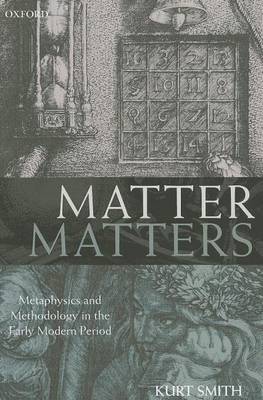Why is there a material world? Why is it fundamentally mathematical? Matter Matters explores a seventeenth-century answer to these questions as it emerged from the works of Descartes and Leibniz. The 'mathematization' of the physics is shown to have been conceptually underwritten by two methods of philosophizing, namely, analysis and synthesis. The connection between these things-mathematics, matter, and the methods of analysis and synthesis-has thus far
gone unexplored by scholars. The book is in four Parts: Part I works out the context in which the theory of modern matter arose. Part II develops the method of analysis, showing how it aligns with Descartes's famous doctrine of clear and distinct ideas. Part III develops the method of synthesis, focusing
primarily on Leibniz, showing how it establishes the very conditions necessary and sufficient for mathematics. Analysis and synthesis turn out to establish isomorphic conceptual systems, which turn out to be isomorphic to what mathematicians today call a group. The group concept expresses the conditions underwriting all of mathematics. Part IV examines several relatively new interpretations of Descartes-the realist and idealist readings-which appear to be at odds with one another.
The examination shows the sense in which these readings are actually compatible, and together reveal a richer picture of Descartes's position on the reality of matter. Ultimately, Matter Matters establishes the claim that mathematics is intelligible if, and only if, matter exists.
- ISBN10 0199664706
- ISBN13 9780199664702
- Publish Date 13 December 2012 (first published 29 April 2010)
- Publish Status Active
- Publish Country GB
- Imprint Oxford University Press
- Format Paperback
- Pages 310
- Language English
